We ought to be wary of disinformation campaigns
Screenshot of the video report by Firstpost on YouTube, published on January 18, where news presenter Palki Sharma, without mentioning any credible sources, claims that Bangladesh's main opposition BNP has launched an 'India Out' movement following Maldives' footsteps. No media outlet in Bangladesh has reported any such development. BNP spokesperson Ruhul Kabir Rizvi has also said that "the party high-ups have not yet discussed about [calling] for boycotting Indian products or promoting an 'India Out' campaign."
A
video recently popped up on my YouTube feed, the headline of which struck me: "Bangladesh's Opposition Launches 'India Out' Campaign." Upon seeing the YouTube channel's name, I realised it was Firstpost, an online news website owned by Mukesh Ambani's Reliance Industries.
The description of the video, which was published on January 18 and has since received more than 850,000 views, clearly mentions: "Bangladesh's opposition party BNP has reportedly launched an 'India Out' campaign inspired by the movement in the Maldives. Social media accounts are urging Bangladeshis to boycott Indian products. Will this campaign impact India-Bangladesh ties?" On the screen appears Palki Sharma, a news presenter and the managing editor of Firstpost, quoting "reports" on how BNP orchestrated a social media campaign against India. In the four-and-a-half-minute video, which discusses the alleged role of BNP's de facto leader Tarique Rahman in initiating the "India Out" movement, Sharma does not refer to the source of the "report."
As a fact-checker and digital investigative journalist, it's part of my job to watch over the daily news cycle and discover potential mis- and disinformation around the web. So I was well aware of a "boycott India" campaign brewing among Bangladeshis on online social platforms like Facebook, X, and YouTube. To the best of my knowledge, the movement was initiated by social media influencers—some of whom are known as critics of the Awami League government. But I could not instantly recall any media reports about BNP or any other political parties talking about boycotting Indian products or expressing their support for the developing social media crusade. Hence, I checked on Google and YouTube to redress my ignorance and try to discover news related to the development. The search engines surprised me with a bunch of results including news articles in English and Hindi that claimed Bangladesh's opposition party BNP and its leaders had launched an "India Out" movement. All the reports are from different Indian outlets such as Zee News, India TV, ABP Live, Aaj Tak, News 18 India, Republic Bharat, TV9 Bharatvarsh, Oneindia Hindi, Times Now Navbharat, and many others. But no Bangladeshi media outlet reported on this. I wondered: would it not have been the norm for journalists in Bangladesh to have broken the story first?

Screenshot of the EurAsian Times story, based on which Indian media outlets reported on the unsubstantiated claim of BNP launching 'India Out' movement in Bangladesh.
Though the majority of Indian news channels and websites referred to "unidentified reports" as the origin of the news, News 18 India
cited EurAsian Times as its source. In the matter of a few clicks, a
report titled "Replicating Maldives, Bangladesh's Biggest Opposition Party, BNP Launches 'India Out' Movement" by EurAsian Times, a Canada-based website run by a few Indian-origin journalists. The report, which was published on January 15, was written by Jennifer Hicks (introduced on the website as "a columnist and political commentator writing on a large range of topics" who "has worked for over 15 years with the now-defunct Hong Kong Free Press").
But in my investigation, I found that at least two pieces of information provided in Hicks' two-sentence bio was false. First, Hong Kong Free Press is an operational English-language news website based in Hong Kong and was never shut down after its launch in 2015. Second, searching for the name of Jennifer Hicks on the Hong Kong Free Press website delivers no results, which could indicate that Hicks has never worked with the news outlet.
More interestingly, Hicks' write-up appeared to be a copy of another article published on January 11 by Weekly Blitz, a Dhaka-based website. In the past, the Blitz was
exposed by
fact-checkers and
journalists' rights organisations as a source of political disinformation. At least 12 paragraphs of both articles match exactly, while the rest of Hicks' write-up is also a paraphrased (and a shorter) version of another Blitz article
titled "Bangladesh Nationalist Party launches 'India Out' movement" (penned by the website's editor Salah Uddin Shoaib Choudhury). Turns out, Hicks is a regular writer for Blitz. However, besides the only headshot of her used on the Blitz and EurAsian Times websites (and a couple of other websites), her credentials or photographs could not be found elsewhere on the internet. It's quite curious that Choudhury is the editor of the news website where Hicks is a contributor, and she plagiarised his article from Blitz to publish it on a different website without giving any credit to the original writer, i.e. her supposed editor.
Screenshot of the article published on the Weekly Blitz, written by its editor Salah Uddin Shoaib Choudhury.
The original Blitz report was based on a source referred to as "it has been learnt"—meaning no source at all! The wording used when introducing the Bangladesh Nationalist Party (BNP) says a lot about what the article was trying to portray. In no way can BNP be identified as an "Islamist" party, let alone be called an "ultra-Islamist" one. The loaded language of the Blitz article, lack of any sources and evidence to support its main claim, and the website's record of spreading political disinformation against independent journalists and critics of the government are enough to debunk its new assertion that BNP has launched a so-called India Out movement in Bangladesh.
Obviously, there could be anger among the pro-BNP crowd surrounding the January 7 election, and some groups inside the party may feel the urge to act along the India boycott movement pioneered by social media influencers. But as long as BNP is not officially taking a position on the campaign, or evidence of its top leadership covertly or overtly backing the move does not come out of a reliable public source, it's disinformative to say that "BNP is leading the 'India Out' movement in Bangladesh."
BNP's anger towards India is real. Ruhul Kabir Rizvi, a spokesperson of the party, told
Nikkei Asia this week that BNP "is vocal on Indian interference on Bangladesh internal issues, politics, and the role New Delhi played during the last general election." But he added, "However…the party high-ups have not yet discussed about [calling] for boycotting Indian products or promoting an 'India Out' campaign."
Disinformation from some Indian media outlets regarding Bangladeshi affairs is nothing new. In recent years, there have been
several instances, documented by fact-checkers, wherein a section of Indian media participated in spreading outright false information about its neighbour. In November 2022, a report came out of several Bangladeshi media outlets that a flood-struck Pakistan had rejected relief aid from Bangladesh. Eventually,
Dismislab tracked the origin of the news down to a website called Bangladesh Live News, which linked "to a Facebook page, which was opened on January 9, 2013. Page transparency shows that its only admin lives in India. The page produces news items and pushes them through advertisements, the payment for which is made in Indian rupees."
An instance of a misleading report published by an Indian media outlet, debunked by fact-checkers.
The patterns in such instances of disinformation echo the narratives of those trying to portray all Bangladeshis as being discriminatory against the country's Hindu minority. Given the fact that disinformation mechanisms have evidently been deployed to target opposition forces in Bangladesh, and given some Indian media outlets' record of amplifying such narratives, the days ahead may be more challenging in terms of fighting cross-border disinformation. To combat this, news outlets in both countries must work together.











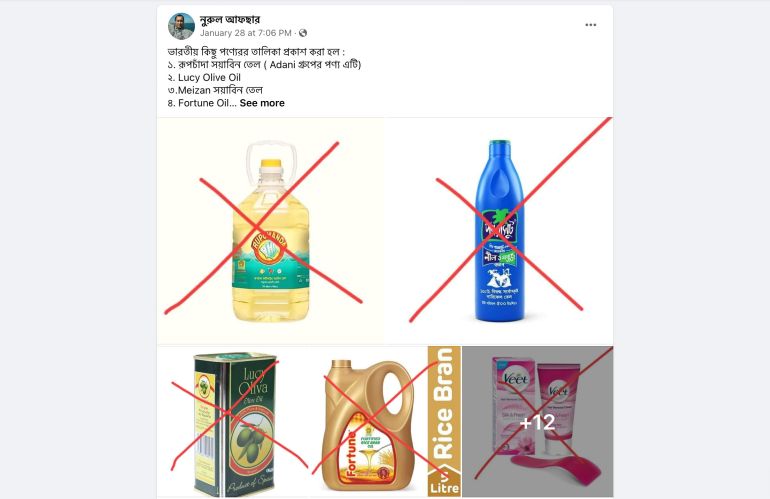
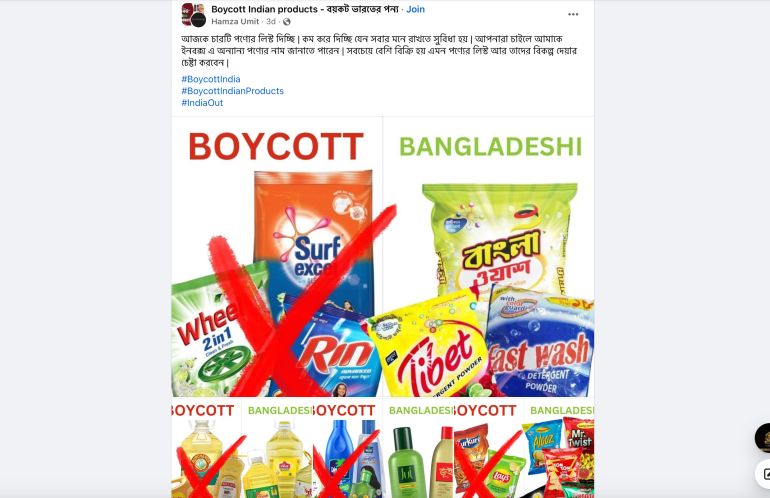



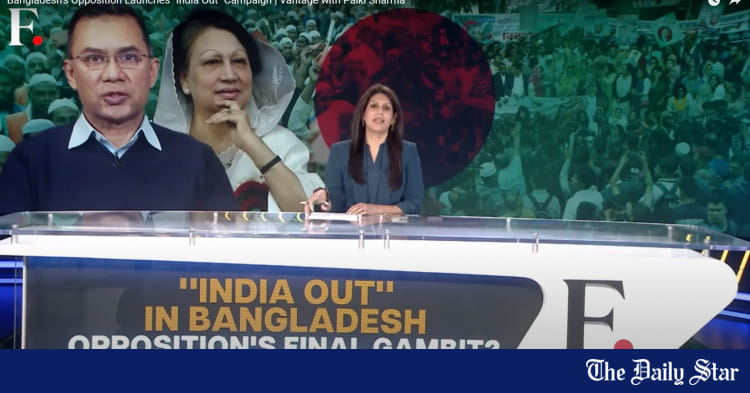



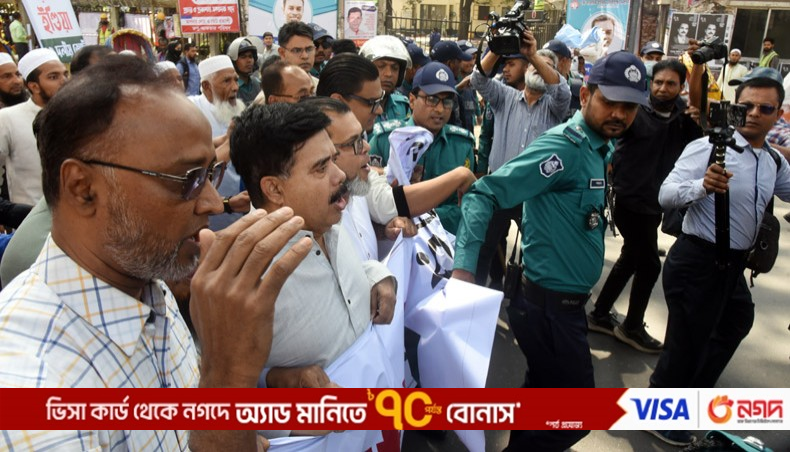
 www.newagebd.net
www.newagebd.net


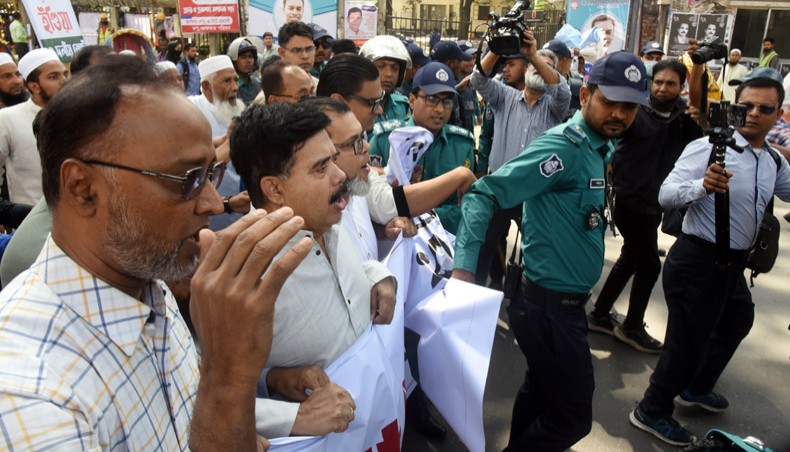



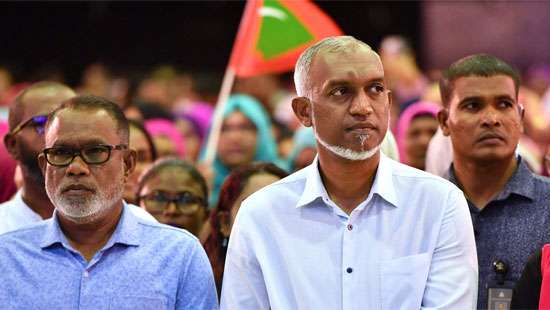
 www.dailymirror.lk
www.dailymirror.lk

